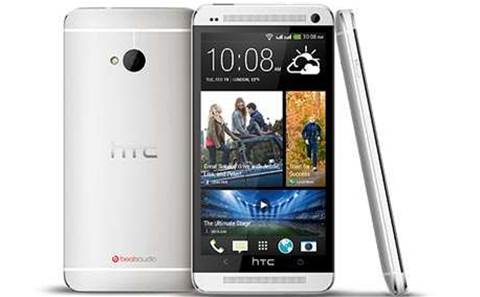HTC has posted another quarterly loss, after confused marketing and supply woes hit sales of the HTC One smartphone – leaving many wondering how its successor, the HTC One M8, will fare.
The HTC One picked up awards including the best of show at Mobile World Congress. Yet HTC lost $62 million for the first quarter of the year, with revenue down 22.6 percent. The company has previously blamed losses on poor marketing for its flagship phone.
"There wasn’t a lot wrong with last year’s HTC One," said Daniel Gleeson, an analyst with IHS. "Almost all of HTC’s problems stem from its lack of scale and sub-par marketing."
[Read our review of the HTC One M8]
Gleeson said that HTC's marketing budget was "tiny" compared with rivals Samsung and Apple, and that its marketing message was confusing. "This year, it needs to focus its marketing much more to build consumer awareness of the One as the best device in a single category."
There was another problem compounding the HTC One's sales woes: for those who were convinced by HTC's marketing efforts, there wasn't enough supply of the handset. "There were some issues with making the product," said Canalys analyst Tim Coulling, pinning the blame on low yields manufacturing the camera sensor. "[HTC] couldn't fulfil demand, basically."
HTC has kept the same base sensor for the camera in the M8, which Coulling said suggests the company has worked its supply problems.
Another good sign was the device's immediate availability at launch – "something we haven't seen before", he said. "By doing that, they beat Samsung to market with the [Galaxy] S5, so obviously that looks a lot more positive for HTC with the M8."
Design improvements
While the HTC One won positive reviews, it wasn't a perfect device, noted Gleeson. "The HTC One itself had a couple big weaknesses that could have turned potential users off: the keys below the screen were arranged in an unusual manner, the camera was very weak compared to the competition and Blinkfeed was essentially forced on users," he said, noting those issues have been largely fixed in the new model.
Gartner analyst Annette Zimmerman added that HTC had been wise to improve the camera on the new model. "It doesn't help to include technology for the sake of technology in a product, as it doesn't help to sell," she said. "So [HTC] did the right thing by focusing on what people use a lot on their phone."
Not only the One
While the HTC One's struggling sales were a major stumbling point for the firm, it had other difficulties as well.
The company has previously acknowledged it lacks a mid-range smartphone - a point analysts also raised. "When the One launched last year, HTC lacked any broader portfolio, as it was focusing on the higher end of the market," said IHS' Gleeson. "This meant that any increased brand awareness in groups unable to afford the One was wasted."
HTC did try to address the problem, but it didn't do enough. "Even when the One Mini came out later in the year, HTC still lacked a solid mid-range device to complete its portfolio," Gleeson said. "This year, with the Desire 601, that slot in its portfolio is filled. This will also help with operators, as they prefer to have a range of devices from a single manufacturer too."
Zimmerman agreed. "The main growth in smartphones will be coming from the mid-tier and lower mid-tier going forward, while growth in the high end of the market is to slow down – this is our main assumption in the forecast," she said. "If you want to grow share as a vendor it is hard to do so if you just rely on one model that costs over $600."
Year of the smartwatch
HTC may have addressed its smartphone woes with the M8 and a wider portfolio of phones, but new challenges are emerging.
"While it should address many of the key problems it faced last year, HTC may end up a step behind this year’s most important trend: smart wearables," said Gleeson. "Almost all of its key Android competitors have either launched (Samsung, Sony) or announced (Huawei, LG, Motorola) some form of smart wearable."
"HTC will struggle to sell the new HTC One if it has to compete with a Galaxy S5 that comes with a free Gear smartwatch," he added. "HTC has said that it will launch a smart wearable, but it will not be available until the end of the year at the earliest."




_(21).jpg&h=142&w=230&c=1&s=1)








.jpg&w=100&c=1&s=0)








_(1).jpg&q=95&h=298&w=480&c=1&s=1)


